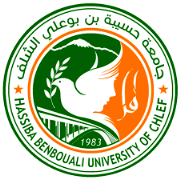Investigating Family metaphors in the speeches of American Presidents George W. Bush and Barack Obama in the United Nations General Assembly
DOI:
https://doi.org/10.70204/jlt.v1i2.268الكلمات المفتاحية:
family metaphors، nurturant parent، strict father، metaphorical entailmentsالملخص
Three salient assumptions suggested by Lakoff (1996 / 2002) in his Morality Politics Theory (MPT): (1) American political positions emerge from two independent moral worldviews that are conceptually entrenched in individuals’ beliefs about ideal families.
Conservatives tend to promote the strict father (SF) family model whereas Democrats endorse the nurturant parent (NP) family model. (2) The conceptual linking or mapping of ideal parenting models onto politics occurs because people metaphorically conceptualise
the nation as a family. (3) Some people may endorse both parenting models (biconceptuals), that is, they can reason about political issues using SF & NP models. Lakoff additionally argues that American politicians use two conceptual metaphors, NATION IS FAMILY and the WORLD COMMUNITY metaphors, to reason about foreign policy. Building onempirical study, this paper seeks to examine Lakoff’s(1996 / 2002) assumptionsin the speeches delivered by G. W. Bush and Barack Obama in the United Nations General Assembly. The analysis of this research corpus gives different conclusions of that suggested by Lakoff. Firstly, contrary to what was suggested by Lakoff (1996 / 2002), the data shows that Obama can be labbeled as SFand G. W. Bush as NP. Secondly, the results reveal that both speakers tend to use more logical literal entailments from the models rather than metaphorical expressions when they speak about various moral political issues.
التنزيلات
منشور
النسخ
- 2024-03-20 (2)
- 2024-03-19 (1)












